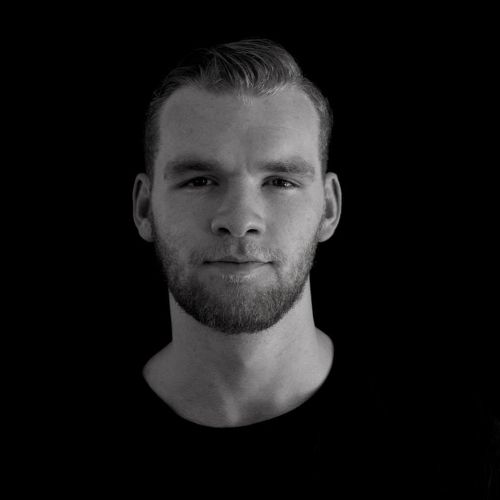
From an artist standpoint, the dance music scene is an odd place. Between long hours behind a computer screen banging one’s head against a wall to perfect that kick drum to taking community college courses to learn how to market your music once it is done, it can be daunting. All in all, the long and steep climb can be tedious and seemingly impossible to the fresh-faced, starry-eyed producers just stepping into the space.
But as the passion for music production leads one down the countless rabbit holes the internet has to offer in search of new tips and tricks, one can stumble on limitless resources on how to get to the next step in their music. Aspiring producers have YouTube Channels, Blog Posts, Forums, User Groups, Podcasts and more to sift through. And while “up-and-coming” producers are a dime a dozen, it takes a rarer breed of music fiend to be the instructor; to be the ones behind a different computer screen compiling all these tips, tricks, methods, and madnesses in hopes that everyone has the necessary tools for success.
In this new EDMTunes series, titled “Beating The Drum”, we will turn the spotlight instead upon these instructors, teachers, and seneis of sonics to learn what makes these guys tick. These are the producers-turned-instructors who have, up until this point, taken a backseat from the limelight to pursue a living by helping others.
Sam Matla

To kick of the series, we talked with New Zealand-based talent, Sam Matla. Sam runs the music production podcast “EDMProd”. Over the past year or more, he has worked to create a finely polished hour-long podcast that hosts a variety of producers, marketers, and industry professionals. Sam looks at his Prodcast through a unique lens, and asks all his guests the tough and relevant questions that music nerds need to hear. Anything from sound design, to workflow, and everything else that can’t be expressed in a YouTube tutorial.
Sam’s journey started at a young age. His father’s family was quite musical, and his early days were filled with drum lessons and band gigs. But when he picked up a compilation titled ‘Top 100 Trance and Techno Tracks’ he instantly fell in love. It was only a matter of time before he picked up a copy of FL Studio to makes tracks which were “. . . absolutely disgusting. Abhorrent. . . [But] They improved over the years.”
Around this time, Sam’s interest in internet marketing was gaining momentum. Running a handful of unsuccessful online ventures (such as a skateboarding blog) gave him a basic understanding on how all these online pieces fit together. The year after graduating high school, he had dreams of running a productivity blog. Ironically enough, he couldn’t muster up the motivation to get those ambitions in gear, so it was back to the drawing board. He opened his notebook where, on June 1st, he penned “Today, June 1st, is the day I commit full time to making music.”
Making the same mistake most green producers do, he tried to gain fame by emulating Hardwell (cut the man some slack, you know you’ve been there too). At the same time he started a production blog with aspirations to shift into a podcast for two reason. The first was simply to improve his speaking skills but the second, and this is important, “because it was another way to add value”. Flash forward to August 2015, and the podcast is gaining phenomenal traction.
Still in these early days of interviews, Sam’s biggest issue was nerves. He had done some interviews for Freshly Squeezed Samples which gave him a basic knowledge of interviewing. Yet the best advice he ever received was: “stop thinking of artists as special people, but rather just normal people who you talk to every day”. And as the names get bigger, so do the logistics of running a podcast. Some big names such as Hyperbits and Noah Neiman have guested on his show, and working around these traveling artists’ hectic schedules can be tricky when you want to release a podcast every week.
You would think the hardest part of these interviews would be coming up with the questions themselves, but Sam disagrees (probably because he admits he’s terrible at preparation): “. . . eventually when I do prepare for interviews, I typically spend a couple hours doing research. A lot of the questions are recycled – they have to be, and it doesn’t matter that they’re recycled because every artist has a different perspective.” These interviews are conducted more as conversations, which give EDMProd its unique aesthetic. And as a producer himself, Sam knows what people in his shoes want to hear, and what questions to probe at further if he ever needs to go off script.
Now with numerous podcasts under his belt, Sam cannot be more thankful for the doors that continue to open for him. He has made lasting friendships with the people who have helped him, including Budi Voogt and the Cymatics team). He is also incredibly thankful for the community he’s met: “The ratio of pricks to non-pricks is about 1:5000, in my experience, and as such it’s not hard to connect with like-minded, interesting people.”

Furthermore, he cannot express the amount of importance adding value to others can bring to you:
“I believe the frequency and quality of opportunities that come to you is predicated on the amount of value you provide to people. That’s what I strive to do, and that’s what I implore others to do as well. It doesn’t matter what field you’re in.”
If you have not had a chance to keep up with EDMProd, it is available on most Podcast-hosting platforms as well as SoundCloud. All you producers out there are going to want to catch the upcoming episode with Ranidu Lankage who is the CEO of the popular follow-gate platform The Artist Union where they will talk about the ever-changing face of the music industry. Also, if you have been following Sam, you will know that he has hosted Hyperbits a couple times, and the two are teaming up on May 10th to release a six hour walkthrough on producing a future house track.
In closing, Sam wants to bestow this advice on all listeners and readers:
“First, read some fricken books. Like really. I know you’re probably a music producer and you think you’re cool to read books, but you’re doing yourself a disservice. Everyone complains about the fact that they can’t find a mentor, but they won’t put in the effort to spend $10-20 on something that someone’s spent years of their life compiling.”
Stay tuned in the upcoming weeks for more inside looks on the industry faces behind some of the best production eduction the internet has to offer!


